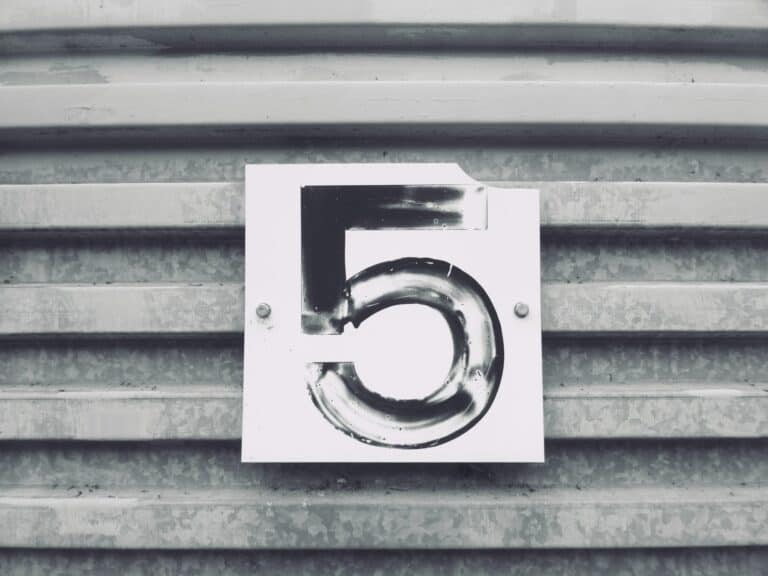Hearing Loss in Teens: What It Is and How To Prevent It
When we imagine a typical hearing aid user, most of us picture an older individual.
It’s true that age-related hearing loss is one of the most common types of hearing loss. However, a growing international concern for parents and young adults to be aware of is noise-induced hearing loss in teens.
The World Health Organization (WHO) estimates that one billion young adults worldwide are at risk of noise-induced hearing loss — most of which is preventable.
With so many young people at risk, we thought it would be a good idea to cover how hearing loss in teens has become a more frequent problem, what warning signs to look for, and how you can prevent further damage.
Here’s what you’ll learn:
- Why Is Hearing Loss Common in Teens?
- Signs of Hearing Loss in Teenagers
- How Can You Prevent It?
- Final Thoughts: Hearing Loss in Teens — What It Is and How To Prevent It
Why Is Hearing Loss Common in Teens?

Hearing loss in teens is on the rise. In late 2020, the Centers for Disease Control and Prevention (CDC) shared research showing that as many as 12.8-17.5% of adolescents ages 12-19 may already deal with noise-induced hearing loss.
Frequent exposure to unsafe volumes of noise in societal settings, such as at schools, concerts, and in movie theaters, is partially to blame. Some cinemas show movies at volumes as loud as 104 decibels (dB). Loud music concerts can average around 115 dB. And just 15 minutes of exposure to noise of that level can lead to hearing loss.
But the largest driver of the increase in hearing loss in teens is believed to be caused by the evolution of how we consume electronic media. Teenagers are now more likely to use earbuds and headphones for long periods, and often at volumes that exceed safe noise levels. One study found that 80% of 13-18-year-olds listened to music on headphones for 1-3 hours each day.
Teens and their parents can have a hard time knowing how loud the sounds these devices emit are. This problem made headlines in May 2022 when a family in Texas filed a lawsuit against Apple, claiming their son had permanent hearing loss after an Amber Alert blared too loudly through his AirPods.
When teenagers are exposed to loud noises both in social settings and by frequent headphone use, their ears don’t get a break. And it’s the leading driver of the rise in permanent noise-induced hearing damage.
Signs of Hearing Loss in Teenagers
Regardless of age, hearing loss typically starts slowly. Teens may feel uncomfortable hearing others over the phone. Or they may find it difficult to hear low hums and high-pitched noises. A ringing or buzzing sound in the ears (tinnitus) is another common sign.
The CDC recommends looking out for the following as warning signs of hearing loss:
- Voices or noises sound muffled
- Needing to ask others to repeat themselves frequently
- Others can hear your music when you are wearing headphones. The WHO recommends listening at 60% or less of your device’s max volume.
- Trouble hearing high-pitched noises
- Ringing or buzzing sound in the ears
- Difficulty hearing when there’s background noise
- Trouble hearing others over the phone
It’s important to have a hearing test if you or a young person shows some of those signs. Early prevention helps curb further damage to hearing and allows you to take more steps to protect your ears.
How Can You Prevent It?

Taking steps to prevent the main causes of hearing loss in teens will help reduce the long-term impacts of hearing damage. Education, prevention, and early detection are the most important factors for adolescents.
Teens who notice any of the warning signs above can discuss their hearing with their pediatrician or other primary health care professional. They may be able to provide a hearing test, or a referral to an audiologist, to determine if loud sounds are starting to cause permanent hearing changes.
There are also a number of prevention tactics, which were recently shared by the WHO on World Hearing Day 2022:
- Don’t listen to music at high volumes for too long, and take breaks every now and then.
- Monitor noise levels if you listen on a smartphone or other device using earbuds or headphones. Apps like HearAngel or dbTrack can track how long you listen to sounds at unsafe levels.
- Consider wearing protective ear plugs in situations with loud noises, like work or school events.
- If you enjoy concerts, consider wearing hearing protection to help protect your ears. And try to take breaks from being in a spot too close to the stage when possible.
Final Thoughts: Hearing Loss in Teens — What It Is and How To Prevent It
News stories and updated international statistics are helping bring increased awareness to the continued rise of hearing loss in teens.
With more young adults using earbuds and activities getting louder, today’s teens need to be more vigilant to prevent problems with their hearing health. With WHO estimates sitting at one in two young people is at risk of hearing damage due to listening to music at unsafe levels, parents and young adults need to be mindful of observed changes in hearing.
While some causes of teen hearing loss aren’t preventable, noise-induced hearing loss is. And there are ways you can help stop noise-induced hearing damage. We recommend safe listening practices and being careful about environments with loud noise exposure. Wear ear protection and be mindful of the volume and amount of time spent listening to loud noises.
Address concerns earlier rather than later with an audiologist or other health care professional if you or your teen notice any changes in their ability to hear. Regular hearing screenings can help identify hearing damage early on.
Programs like LACE can help your teen strengthen their ears. We recommend the program for individuals aged 14 years or older.








Thanks for explaining how serious hearing loss is as a disorder since it could affect their ability to understand things. I have a friend who talked about how his colleague is struggling to pay attention during their meetings because of a similar problem. Maybe this can convince him to find an ENT that can treat this.